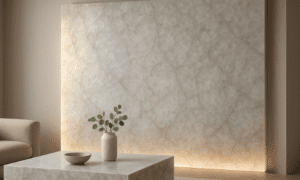Introduction
When it comes to choosing the right flooring material for your home or office, there are several options available in the market. Laminate flooring has gained immense popularity in recent years due to its affordability, durability, and wide range of design options.
However, it’s essential to compare laminate flooring with other materials to make an informed decision.
In this comprehensive guide, we will delve into the pros and cons of laminate flooring compared to other popular flooring options, such as hardwood, vinyl, and tile.
Laminate Flooring: An Overview
Before we delve into the comparison, let’s understand what laminate flooring is. Laminate flooring is a synthetic flooring product that simulates the look of hardwood, stone, or tile.
Choosing the right laminate flooring is also one of the most crucial aspects. So always choose the best laminate flooring store scarborough if residing in canada, toronto.
It consists of multiple layers, including a high-density fiberboard (HDF) core, a photographic layer, and a protective top layer. Laminate flooring is known for its affordability, easy installation, and low maintenance requirements.
Hardwood Flooring: Timeless Elegance
Pros of Hardwood Flooring
Hardwood flooring offers timeless beauty and adds a touch of elegance to any space. Here are some advantages of hardwood flooring:
Natural Beauty: Hardwood floors exude a warm and natural appeal, creating a classic and luxurious ambiance.
Durability: High-quality hardwood floors can last for decades if properly maintained.
Value: Hardwood flooring adds value to your property and is often considered a desirable feature by potential buyers.
Cons of Hardwood Flooring
While hardwood flooring has its advantages, it also comes with a few drawbacks:
Cost: Hardwood flooring can be significantly more expensive than laminate and other alternatives.
Susceptible to Damage: Hardwood floors are prone to scratches, dents, and moisture damage.
Maintenance: Regular maintenance, including refinishing and polishing, is necessary to keep hardwood floors looking their best.
Vinyl Flooring: Versatile and Budget-Friendly
Pros of Vinyl Flooring
Vinyl flooring has come a long way and offers a plethora of benefits:
Affordability: Vinyl flooring is a cost-effective option for those on a tight budget.
Water Resistance: Vinyl is highly resistant to water, making it suitable for areas prone to moisture, such as bathrooms and kitchens.
Easy Maintenance: Vinyl floors are effortless to clean and require minimal maintenance.
You can also visit any vinyl flooring store scarborough to buy good vinyl flooring.
Cons of Vinyl Flooring
Despite its advantages, vinyl flooring has a few limitations to consider:
Durability: While vinyl flooring is durable, it may not match the longevity of hardwood or tile.
Environmental Impact: Some vinyl flooring products may contain harmful chemicals, so it’s crucial to choose eco-friendly options.
Perceived Value: Vinyl flooring may not offer the same perceived value as hardwood or tile when it comes to resale or upscale properties.
Tile Flooring: Timeless Appeal and Endless Variety
Pros of Tile Flooring
Tile flooring, made from materials like ceramic or porcelain, provides a multitude of benefits:
Durability: Tile flooring is highly resistant to scratches, stains, and wear, making it ideal for high-traffic areas.
Variety: Tiles come in various colors, patterns, and sizes, allowing you to create unique and customized designs.
Moisture Resistance: Tiles are naturally resistant to water, making them suitable for bathrooms, kitchens, and outdoor spaces.
Cons of Tile Flooring
While tile flooring offers versatility, it also has some downsides to consider:
Installation Complexity: Installing tile flooring can be a complex and time-consuming process, often requiring professional assistance.
Cold and Hard Surface: Tile flooring tends to be colder and harder underfoot compared to other materials, which may not be desirable for some individuals.
Grout Maintenance: Grout lines between tiles require regular cleaning and maintenance to prevent staining and discoloration.
Laminate Flooring: The Practical Choice
Pros of Laminate Flooring
Laminate flooring has gained popularity for several reasons:
Affordability: Laminate flooring is a budget-friendly option, offering the appearance of hardwood or tile at a fraction of the cost.
Durability: Laminate flooring is highly resistant to scratches, stains, and fading, making it ideal for busy households or commercial spaces.
Easy Installation: Laminate flooring utilizes a click-lock system, enabling straightforward installation without the need for glue or nails.
Cons of Laminate Flooring
While laminate flooring has numerous advantages, it’s essential to consider its limitations:
Moisture Sensitivity: Laminate flooring can be susceptible to moisture damage, so it’s crucial to address spills and leaks promptly.
Limited Refinishing Options: Unlike hardwood, laminate flooring cannot be refinished, so damaged or worn-out planks may need replacement.
Sound and Feel: Laminate flooring can sound hollow and lack the authentic feel of natural materials.
Conclusion
Choosing the right flooring material depends on your budget, lifestyle, and aesthetic preferences. Hardwood flooring offers timeless beauty but comes with a higher price tag and maintenance requirements. Vinyl flooring provides versatility and affordability but may lack the perceived value of natural materials.
In comparison, laminate flooring strikes a balance between cost-effectiveness, durability, and aesthetics, making it a practical choice for many homeowners. By understanding the unique characteristics of each flooring material, you can make an informed decision that suits your specific needs and creates a beautiful and functional space.



































